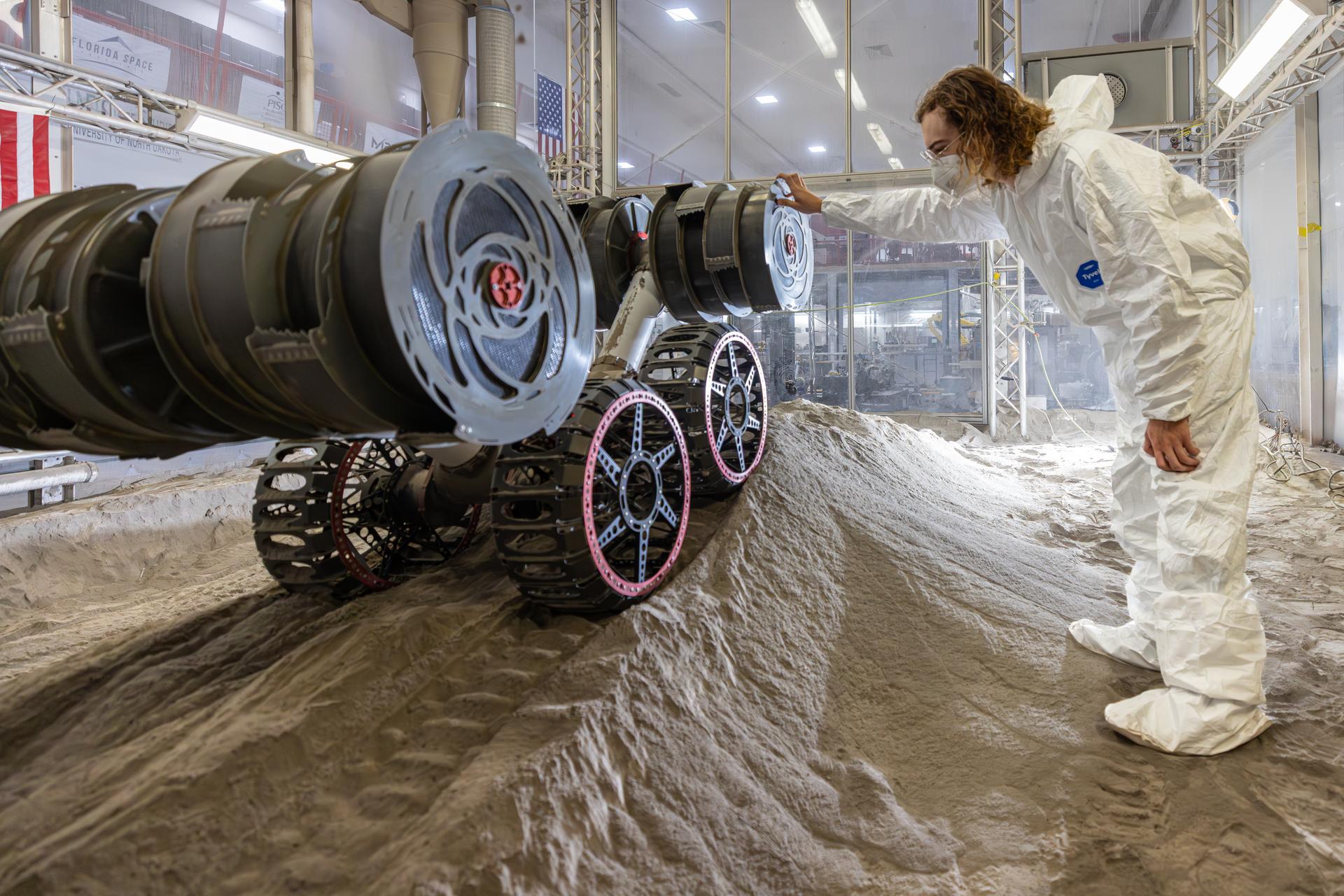Now Reading: Indian Students Gear Up for NASA’s 2025 Lunabotics Challenge
-
01
Indian Students Gear Up for NASA’s 2025 Lunabotics Challenge
Indian Students Gear Up for NASA’s 2025 Lunabotics Challenge

Swift Summary
- University of Utah Wins Artemis Award: The Utah Student Robotics Club from the University of Utah won the grand prize at NASA’s 2025 Lunabotics challenge held at Kennedy Space Center. Their robot excelled in tasks like excavating lunar regolith and berm-building.
- Additional Awards:
– The University of Illinois Chicago earned the Robotic Construction Award for excellence in teamwork and robot design.
– Purdue University received the Caterpillar Autonomy Award for advancing autonomous control systems, while Colorado School of Mines achieved first place with the Systems Engineering Award.- Innovation Awards were presented to teams that brought originality and efficiency, including students from the universities of Illinois Chicago and Virginia.
- Educator Recognition: Dr. Eric Meloche (college of DuPage) and Jennifer Erickson (Colorado School of Mines) received educator awards for inspiring student innovation.
- Special Achievements by Othre Teams:
– Best Use Systems engineering Tools: university of Utah
– Best Presentation by First-Year Team: University at Buffalo
– multiple demonstrations awards were given to outstanding teams like Colorado School of Mines and Miami.
Indian opinion Analysis
The successful execution by university teams at NASA’s Lunabotics Challenge highlights significant advancements in robotics engineering with critical implications for India’s aspirations in space exploration. India has consistently emphasized affordable, innovative space technology-skills showcased here align well with long-term lunar goals under global missions such as Artemis or private collaborations.
India’s burgeoning space programs might benefit by encouraging its institutions to participate in similar competitions worldwide, fostering a culture marrying theory with hands-on developmental capabilities like autonomous systems or remote operations on extraterrestrial surfaces. This competition is also a reminder that fostering youth engagement paired with mentoring builds future-ready science ecosystems-a model ISRO can adapt domestically via national robotic challenges akin to Lunabotics.
Global partnerships involving educational exchanges or collaborative projects could further enhance India’s capacity-building efforts aligned toward consistent leadership within lunar explorations supported internationally through robotics competencies demonstrated successfully here.























